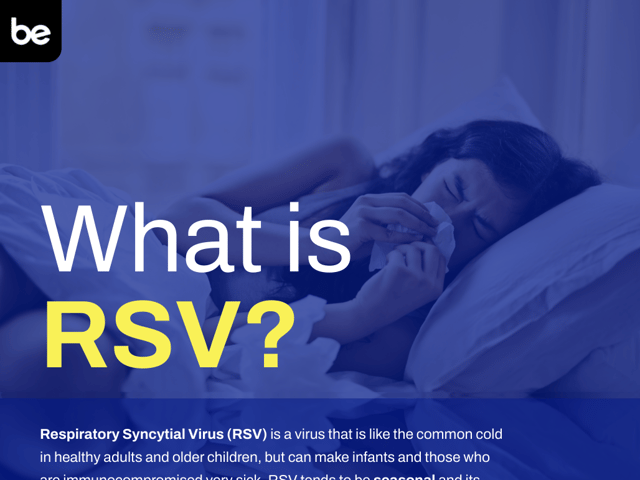
How Long Should I Study for the NCLEX-PN?
For aspiring nurses, the NCLEX-PN is a critical hurdle on the path to becoming a licensed practical or vocational nurse. Given its importance, it’s only natural to wonder how long you should study for it. In this article, we’ll delve deep into the NCLEX-PN specifications, scoring details, and provide you with tips to ace the exam.
The Essence of the NCLEX-PN
The NCLEX-PN, overseen by the National Council of State Boards of Nursing, isn’t just another written test. It serves as a rigorous evaluation, ascertaining that a candidate possesses not only theoretical knowledge but also the practical abilities essential for nursing. The aim? To make certain that nurses entering the profession can offer care that’s both safe and of the highest quality.
Breaking Down the Exam Content
The content of the NCLEX-PN is strategically divided to cover all facets of nursing. Here’s a brief overview:
Safe and Effective Care Environment: This domain ensures that nurses can function within a team, ensuring patient safety and implementing control measures to prevent infections.
-
Coordinated Care: Making up 18-24% of the exam, this subcategory tests the candidate’s ability to manage patient care, respecting patient rights, and understanding the broader healthcare system.
-
Safety and Infection Control: Accounting for 10-16% of the exam, this area evaluates one’s skills in ensuring a safe environment for both patients and healthcare providers.
Health Promotion and Maintenance: Comprising 6-12% of the exam, this section delves into a nurse’s role in assisting individuals and groups to attain and maintain optimal health, spanning all life stages.
Psychosocial Integrity: At 9-15%, this portion probes into the emotional and mental well-being of patients, ensuring nurses can provide care that respects the individual’s cultural, mental, and social needs.
Physiological Integrity: This is a comprehensive section ensuring that the nurse is competent in delivering physical care. It encompasses:
-
Basic Care and Comfort (7-13%): Focusing on the basic needs and comfort of patients, including aspects like nutrition, mobility, and personal hygiene.
-
Pharmacological Therapies (10-16%): Testing the understanding of medication administration, potential side effects, and patient monitoring.
-
Reduction of Risk Potential (9-15%): Emphasizing preventative care and early detection of potential health issues.
-
Physiological Adaptation (7-13%): Addressing the care of patients with acute, chronic, or life-threatening physical health conditions.

Navigating the Examination Structure
Candidates attempting the NCLEX-PN should be prepared to answer anywhere from the baseline 85 questions to the maximum of 150 questions. These questions are structured to ensure a comprehensive assessment:
-
Content Area Questions: Of the entire question set, 52 questions are dedicated to evaluating knowledge from the eight core areas detailed above.
-
Clinical Judgment Case Studies: These are a set of 18 questions split across three case studies. These scenarios ensure that a nurse’s clinical judgment, spanning multiple content areas, is sound and patient-centric.
-
Pretest Items: To further refine the examination process, there are 15 pretest items that are unscored. These are used for research and potential future test construction.
Additionally, while the exam provides a time frame of five hours, it’s crucial to note that this includes any breaks the candidate might take.
NCLEX-PN Scoring
The NCLEX-PN is a computer adaptive exam that adjusts its level of difficulty based on the test-taker’s performance. As candidates answer questions correctly, subsequent items might become more challenging, and vice versa. This unique approach ensures a more accurate assessment of a candidate’s competence and readiness to enter the nursing profession. Success or failure on the exam is determined three ways:
95% Confidence Interval Rule
Most candidates encounter the 95% Confidence Interval Rule. With the NCLEX-PN’s computer-adaptive design, the system continually gauges your proficiency as you progress through the questions. The moment it’s 95% confident about your capabilities, either falling above or below the passing benchmark, the examination concludes. This determination might arrive even before you’ve tackled the maximum question allotment or before you’ve fully utilized the given time.
Maximum-Length Exam
For those whose performance stays close to the passing threshold, there’s the Maximum-Length Exam scenario. Here, the computer might remain less than 95% confident about the candidate’s standing. When this occurs, the test stretches to its utmost limit, which is 150 questions for the NCLEX-PN. Once this threshold is reached, your overall performance throughout the exam will dictate whether you pass or fail.
Run-Out-of-Time Rule (R.O.O.T.)
Efficient time management is the crux of the R.O.O.T. scenario. If candidates deplete the provided time before completing the test and the computer hasn’t reached the 95% confidence mark regarding their competence, the R.O.O.T. criteria kick in. Failing to answer the minimum required questions, which is 85 for the NCLEX-PN, results in an automatic fail. However, if candidates manage to respond to at least this minimum, the examination’s outcome depends on their performance on these items. A score that matches or surpasses the passing standard translates to success, while falling short results in failure.

Studying for the NCLEX-PN
Preparing for the NCLEX-PN requires a combination of structured planning, in-depth understanding, and strategic approaches. As you navigate this essential phase in your journey to becoming a licensed nurse, here’s some tips to optimize your study sessions and boost your chances of success.
Understanding the Exam Format
The NCLEX-PN is distinct from many traditional tests due to its computer-adaptive testing mechanism. It’s essential to invest time in getting acquainted with this unique format. By understanding the adaptive nature of the exam, you’ll be better positioned for efficient time management during the test and might also reduce any anxiety related to encountering unexpected question difficulties.
Quality Over Quantity
While the number of hours dedicated to studying often gains prominence in exam preparation, it’s the quality of those hours that truly matters. Instead of resorting to rote learning, focus on deeply understanding and internalizing the concepts. This approach not only solidifies your foundational knowledge but also equips you to tackle a diverse array of complex scenarios during the exam.
Practice with Mock Tests
Simulating the exam experience is a proven method to assess your level of preparedness. Incorporating full-length practice exams into your regimen will familiarize you with the test’s environment and structure. Moreover, these NCLEX-PN practice tests can serve as indicators, spotlighting areas that might require further review.
Review Regularly
The key to long-term retention of information is consistency in revision. It’s beneficial to earmark specific intervals in your study calendar dedicated solely to revisiting and revising past topics. Utilize aids like flashcards, apps, or courses tailored for NCLEX-PN to make these sessions more productive.
Join a Study Group
There’s merit to the adage that “two heads are better than one.” Study groups can be a reservoir of diverse perspectives, fostering collaborative learning. The mutual support and motivation offered by peers in a study group can be invaluable. Engage in group discussions, set challenges for each other, and pool resources for a comprehensive study experience.
Stay Updated
Nursing is a dynamic profession, with its practices and guidelines continually evolving. Ensure that the materials you’re relying on for your preparation are up-to-date. Regularly scour authoritative nursing platforms and forums to stay informed about any recent changes or updates that could be pertinent to the NCLEX-PN.
How Long Should You Study for the NCLEX-PN?
So now that you know all about what to expect on the NCLEX-PN, how long should you prepare for it? The truth is, there isn’t a one-size-fits-all answer. However, with a structured approach and insights from previous test-takers, we can establish some general guidelines.
Factors to Consider
Your Educational Background: If you’ve recently completed your nursing program, many concepts will be fresh in your mind. Conversely, if there’s been a considerable gap since graduation, you might need more time to review.
Study Style: Some individuals are marathon studiers who immerse themselves for long hours, while others thrive with shorter, more frequent sessions. Understand your style and plan accordingly.
Content Familiarity: Gauge your comfort level with the NCLEX-PN content. If you find multiple areas where your knowledge feels shaky, you’ll need to allocate additional study time.
Practice Test Performance: Regular mock tests will not only familiarize you with the exam format but also highlight areas that need more attention. If your scores aren’t improving or are below the desired threshold, it’s a sign to intensify your preparation.
General Recommendations
Start Early: Beginning your preparation 2-3 months in advance is typically advised. This timeline allows for comprehensive coverage without the need for last-minute cramming.
Consistency is Key: Whether you choose to study for two hours a day or 15 hours a week, maintain consistency. Regular touchpoints with the material aid retention.
Final Weeks: Dedicate the last 2-3 weeks before the exam for intensive revision and taking as many practice tests as possible. This period should be about reinforcing knowledge, improving speed, and boosting confidence.
Crafting Your NCLEX-PN Study Plan
A well-structured study plan is the backbone of effective preparation. It provides direction, ensures comprehensive content coverage, and can significantly alleviate exam-related stress. Here, we’ll explore sample study plans suited for different durations, helping you tailor your approach based on the time you have.
One Week Intensive Study Plan
If you’re on a tight schedule or looking for a final week of rigorous revision, consider this one week study plan:
1 Week Study Plan
| Day | Morning Session | Afternoon Session | Evening Session |
|---|---|---|---|
| 1 | Coordinated Care | Safety and Infection Control | Mock Test: Coordinated Care, Safety and Infection Control & Review |
| 2 | Health Promotion and Maintenance | Psychosocial Integrity | Mock Test: Health Promotion and Maintenance, Psychosocial Integrity & Review |
| 3 | Basic Care and Comfort | Pharmacological Therapies | Mock Test: Basic Care and Comfort, Pharmacological Therapies & Review |
| 4 | Reduction of Risk Potential | Physiological Adaptation | Mock Test: Reduction of Risk Potential, Physiological Adaptation & Review |
| 5 | Review Weak Areas | Practice Question Sets | Mock Test: Covering weak areas identified & Review |
| 6 | Final Comprehensive Mock Test | Review Incorrect Answers | Review Areas still needing improvement |
| 7 | Review All Sections | Practice Question Sets (All Topics) | Early Sleep (for retention and rejuvenation) |
One Month Comprehensive Study Plan
For those who have a more extended period for preparation, we’ve created a one month study plan:
1 Month Study Plan
| Week | Monday | Tuesday | Wednesday | Thursday | Friday | Weekend |
|---|---|---|---|---|---|---|
| 1 | Coordinated Care: Study | Safety and Infection Control: Study | Health Promotion & Maintenance: Study | Psychosocial Integrity: Study | Mock Test: Covering Week 1 topics | Review Week 1 topics & Rest |
| 2 | Basic Care & Comfort: Study | Pharmacological Therapies: Study | Reduction of Risk Potential: Study | Physiological Adaptation: Study | Safety and Infection Control: Review | Mock Test: Covering Week 2 topics |
| 3 | Coordinated Care: Review | Mock Test: Physiological Adaptation | Health Promotion & Maintenance: Review | Psychosocial Integrity: Review | Mock Test: Pharmacological Therapies | Mock Test: Psychosocial Integrity |
| 4 | Mock Test: Coordinated Care | Mock Test: Basic Care & Comfort | Mock Test: Health Promotion & Maintenance | Mock Test: Reduction of Risk Potential | Mock Test: Safety and Infection Control | Comprehensive Mock Test & Review |
Three Month Detailed Study Plan
You’ve got lots of time, so make the most of it! For in-depth study and thorough preparation, check out this three month NCLEX-PN study plan:
3 Month Study Plan
| Month | Week 1 | Week 2 | Week 3 | Week 4 |
|---|---|---|---|---|
| 1 | Study: Coordinated Care | Study: Safety and Infection Control | Study: Health Promotion & Maintenance | Study: Psychosocial Integrity |
| Review & Mock Test: Coordinated Care | Review & Mock Test: Safety and Infection Control | Review & Mock Test: Health Promotion & Maintenance | Review & Mock Test: Psychosocial Integrity | |
| 2 | Study: Basic Care & Comfort | Study: Pharmacological Therapies | Study: Reduction of Risk Potential | Study: Physiological Adaptation |
| Review & Mock Test: Basic Care & Comfort | Review & Mock Test: Pharmacological Therapies | Review & Mock Test: Reduction of Risk Potential | Review & Mock Test: Physiological Adaptation | |
| 3 | Review: Coordinated Care, Safety and Infection Control | Review: Health Promotion & Maintenance, Psychosocial Integrity | Review: Basic Care & Comfort, Pharmacological Therapies, Physiological Adaptation, Reduction of Risk Potential | Comprehensive Mock Tests & Review All Topics |
Consider a Personalized Study Course
While self-study plans and strategies are invaluable, sometimes the vastness of the NCLEX-PN syllabus can feel overwhelming. This is where a personalized study course can make all the difference.
A personalized study course for the NCLEX-PN offers unparalleled advantages, particularly in its adaptability and comprehensive coverage. Whether you’re weeks or months away from the exam, the course adjusts its content and pacing to align seamlessly with your preparation timeline. Furthermore, such a tailored approach ensures that every topic and subtopic of the NCLEX-PN syllabus is addressed, eliminating any concerns about missed material and boosting your readiness for the exam.
Get Ready to Pass the NCLEX-PN
While the NCLEX-PN is undoubtedly challenging, with systematic preparation and a clear understanding of your strengths and areas for improvement, you can determine the optimal study duration for success. Always aim for comprehension over cramming, and consider seeking resources or courses that can be customized to your specific needs. The goal is not just to pass the exam, but to enter the nursing field with confidence in your knowledge and skills.
Keep Reading

National Council Licensure Examination-Practical Nurse Blog
How to Become an LPN
Would you like to average $30 dollars per hour in a rewarding full-time…

National Council Licensure Examination-Practical Nurse Blog
What Is the Difference between Dementia and Alzheimer’s?
Many people use the terms dementia and Alzheimer’s interchangeably, but…

National Council Licensure Examination-Practical Nurse Blog
What is RSV?
Respiratory Syncytial Virus (RSV) is a virus that is like the common co…